
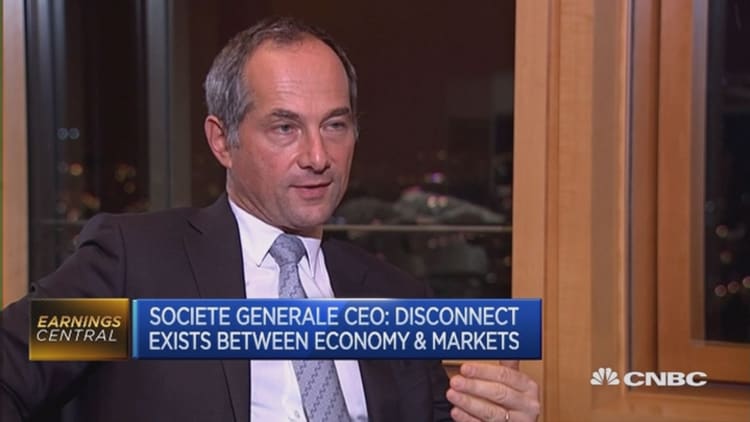
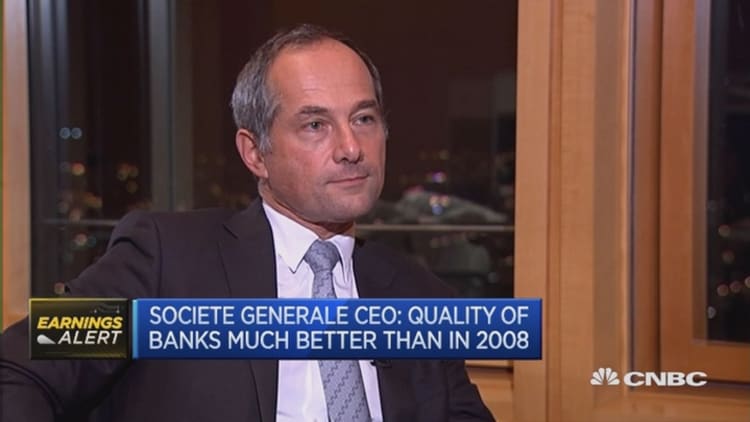
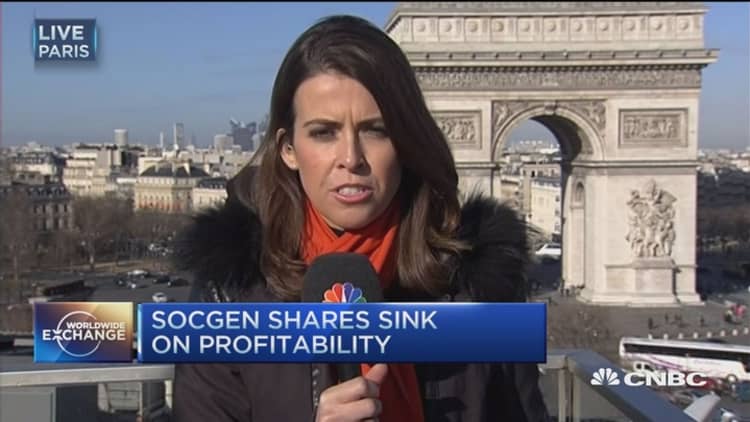
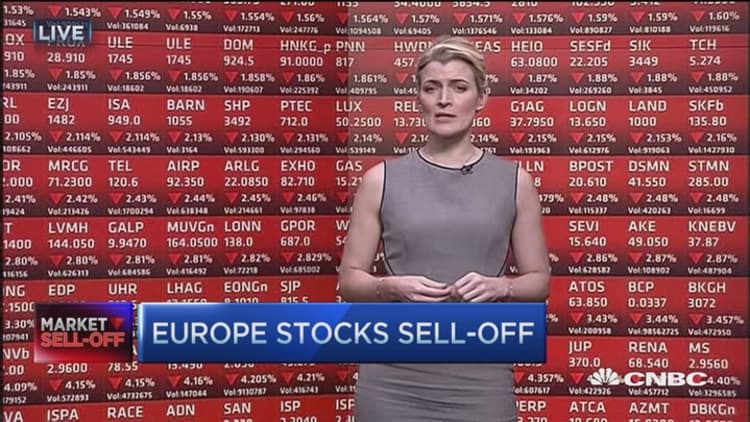
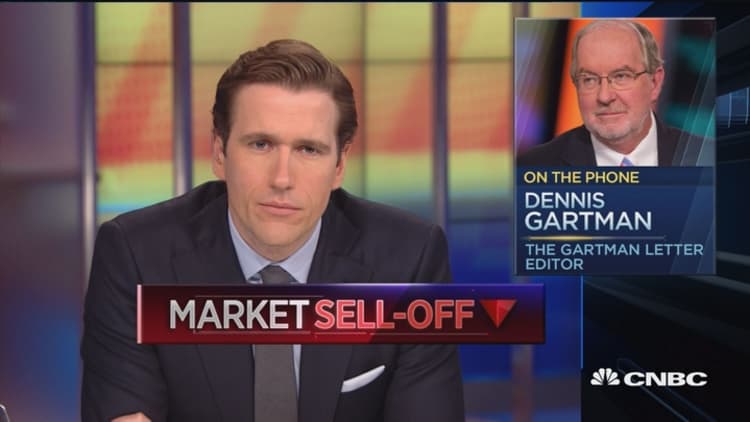
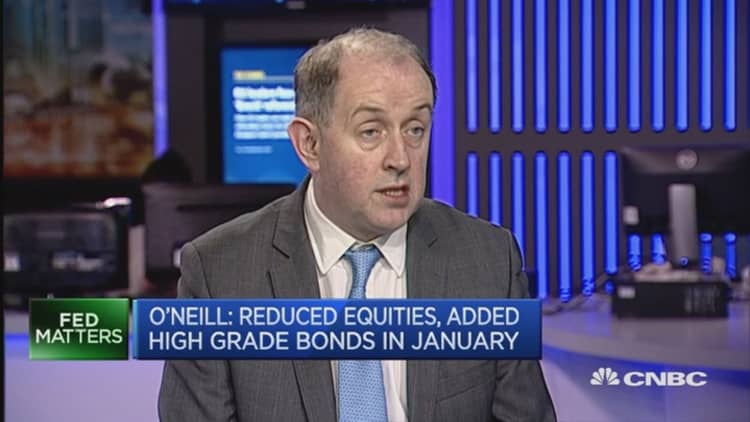
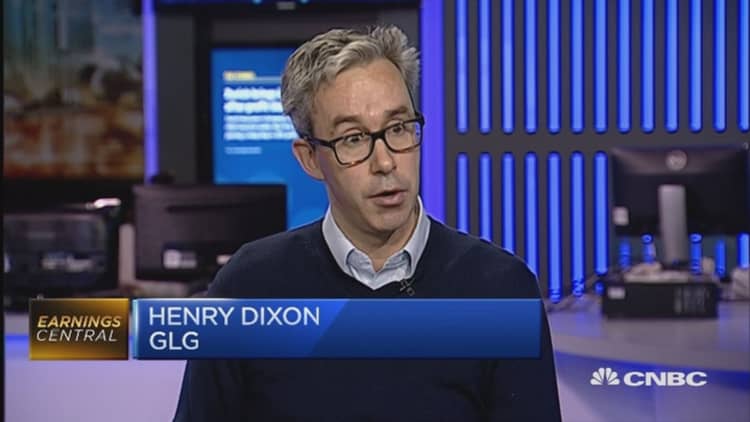
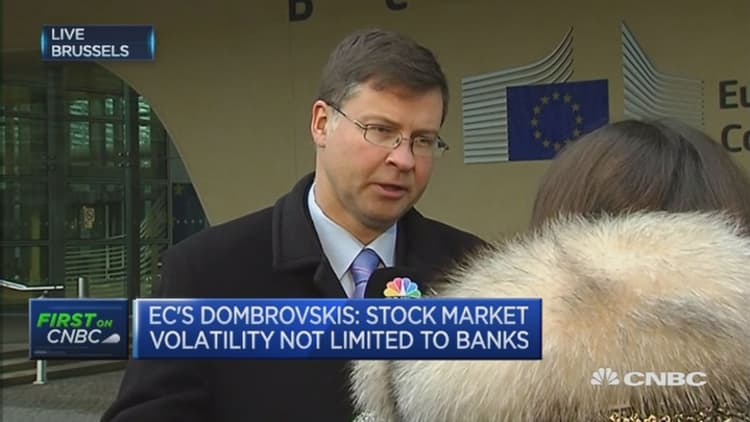
Shares of European banks tumbled on Thursday, resuming a downward run that has knocked more than one-quarter off their value this year.
Analysts are divided as to what markets are more scared by — the still-sluggish euro zone economy, exposure to the energy sector and China or some banks' balance sheets?
On Thursday, the head of Societe Generale was the latest bank executive to attempt to reassure investors that there was nothing to fear.
"There is too much nervousness compared with reality… The quality of the banking sector is much better than in 2008," Frederic Oudea told CNBC, as shares of his bank slumped following results that missed expectations.
With that in mind, CNBC takes a look at some of Europe's largest banks by market capitalization and what, if anything, you need to worry about.
Europe’s 20 biggest banks by market cap
- HSBC Holdings — UK — $126 billion
- Lloyds Banking Group — UK — $60 billion
- Banco Santander — Spain — $58 billion
- UBS Group — Switzerland — $57 billion
- BNP Paribas — France — $56 billion
- Intesa Sanpaolo — Italy — $46 billion
- ING Group — Netherlands — $43 billion
- BBVA — Spain — $41 billion
- Nordea Bank — Sweden — $39 billion
- Royal Bank of Scotland — UK — $39 billion
- Barclays – UK – $39 billion
- Societe Generale — France — $29 billion
- Danske Bank — Denmark — $27 billion
- Credit Suisse Group — Switzerland — $27 billion
- Credit Agricole — France — $24 billion
- Svenska Handelsbanken — Sweden — $24 billion
- Deutsche Bank – Germany -- $23 billion
- KBC Group — Belgium — $22 billion
- Skandinaviska Enskilda Banken — Sweden — $22 billion
- Swedbank — Sweden — $21 billion
Deutsche Bank – Germany’s biggest bank
Germany remains Europe's biggest economy, but its flagship bank is only the 17th largest in the region, following a tumble in its stocks. Deutsche Bank shares have lost 41 percent of their value this year, compared with a loss of 28 percent for the STOXX 600 European bank index.
Last month, the bank, which now has a market cap of $22.71 billion, reported its biggest annual loss on record for 2015, hit by the costs of restructuring its investment bank and setting aside more money to cover litigation costs.
Shares of Deutsche Bank led a rebound in European financial stocks on Wednesday, after the Financial Times reported that it was considering buying billions of euros of its own senior debt — the very instruments that sparked the big sell-off in the bank's shares in the first place. But the upturn failed to last and on Thursday, Deutsche shares were down as much as 9.5 percent on the day.
Deutsche is the sole German bank in the top 20 in Europe for market cap. By comparison, there are four U.K. banks, four Swedish banks and three French banks.
On Thursday, Italian Prime Minister Matteo Renzi namechecked Germany when he told reporters that he was less worried about Italian banks than those in other countries, according to Reuters.
Intesa Sanpaolo – Italy’s biggest bank
Italian lenders are among the hardest-hit by this year's bank rout, following the European Central Bank's request in January for information on their still-large portfolios of bad debts. Investors are concerned about how these banks will deal with their non-performing loans, given that they are unlikely to be repaid.
The banks under scrutiny include UniCredit, Italy's second-biggest bank by market capitalization and the 21st largest in Europe. That is in addition to Banco Popolare and Banca Popolare di Milano, which are set to merge to become Italy's third-largest bank, and Banca Monte dei Paschi di Siena.
However, Intesa Sanpaolo, Italy's biggest bank with market cap of $46.39 billion, escaped scrutiny, as did Mediobanca and UBI Banca.
On Monday, the chief executive of Intesa Sanpaolo told CNBC that his bank's stock of bad debts had declined and suggested investors focused on net rather than gross non-performing loans.
"If you have, like Intesa SanPaolo, 40 billion euros ($45 billion) of gross bad loans, but you have 15 billion euros net — because we posted 25 billion euros of provisions — and you have 30 billion euros of collateral facing the 15 billion euros, you are in a situation of having a proxy of zero risk," he told CNBC.
On Wednesday, the Italian government approved a package of measures that included a guarantee scheme to help its bank sell off bad loans.
UBS – Switzerland’s biggest bank
Market turbulence is feeding through to remuneration at Switzerland's biggest banks.
This month, UBS — Europe's third-largest bank with market cap of $57.29 billion — reported a year-on-year decline in fourth quarter pre-tax profit in its investment division. The bank said it was freezing salaries for its investment bankers until at least the middle of the year.
This came shortly after the head of Credit Suisse — Europe's 14th largest bank and Switzerland's second biggest — asked for a cut to his 2015 bonus, after the bank reported its first annual loss in eight years.
"The latest results from UBS and Credit Suisse reflect the pain of market volatility and underline the restructuring challenge faced by Credit Suisse in particular… While still engaged in significant cost cutting, UBS has ostensibly completed its major restructuring while Credit Suisse's looks to be a work in progress," S&P Global Market Intelligence said in a report forwarded on Thursday.
— With contribution from CNBC's Seamus Conwell.

